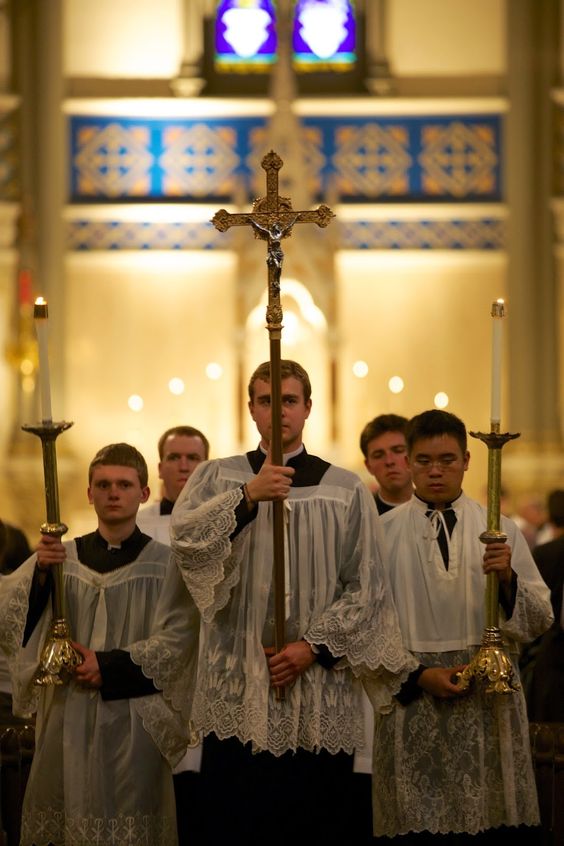
Recently, the Catholic Church has seen a significant decline in youth participation.
This has raised many questions about why the younger generation is not interested in attending church. We’ve outlined 12 troubling causes of the youth’s withdrawal from the church.
Scandals and Financial Priorities of the Church

Over the years, the catholic church has been in several scandals. A lot of them, like child abuse and corruption, have been proven to be accurate, and this has led to feelings of mistrust in the church.
In addition, as the world faces global poverty, the church is flourishing in vast wealth. As expected, the Catholics have been accused of hypocrisy and not helping the needy adequately.
Social Media and Access to Information

Access to social media and digital platforms has done a number on today’s youth. Several communities and ideologies online deter the younger generation from the church.
Furthermore, with information at their fingertips, today’s youth no longer require spiritual or moral guidance from the church, which further reduces its importance to them.
Moral Discrepancies and Rigid Doctrine Topics in Church

There is a significant gap between the youth’s morality and the church leaders’ teachings and actions. At the same time, there is also a discrepancy between the belief of the church and that of the youngsters on topics like contraception, divorce, and homosexuality.
These deter the younger ones from fully believing in the church and encourage withdrawal.
Questioning Authority and Having Intellectual Freedom

Intellectual freedom and the ability of youth to question authority is a significant challenge for the church. Today, young people are free to explore and understand teachings rather than accept them at face value.
They also have a high independent thinking capacity, making them challenge religious teachings or authorities. This, in turn, leads to less participation and, sometimes, complete departure from the house of faith.
Cultural Shifts and Scientific Progress

Religious and cultural rituals, which were essential to many before, are now seen by the youth as a waste of time. They would rather not be affiliated with religion or be secluded to one belief.
In addition, the world has made many scientific advancements that oppose religion. Now, the younger ones see most religious beliefs as mythological or simplistic.
Institutional Image of the Church and Globalization

In recent times, the youth have considered the church’s image ancient. This is because the church has had the same values and beliefs for decades.
Furthermore, exposure to global ideas and cultures can lead to broader spiritual perspectives that don’t align with a single religious tradition. This, in turn, discourages the youth from getting involved with the church.
Modern Family Dynamics and Religious Pluralism

Families of today are very different from those of the past. Due to the diverse family structures, the church’s “outdated” teachings might not always seem inclusive or understanding.
Also, today’s youth are exposed to several different faiths, unlike before. Therefore, this causes a sense of equivalency between religions or beliefs. Some Catholics are now Muslims, Buddhists, or even Hindus.
Lack of Youth Engagement and Inadequate Religious Education in the Church

The Catholic Church does not cater to the youth with inclusive youth programs or initiatives. Therefore, to the younger members, it may seem like they’re catering only to older generations.
Equally important, they do not provide religious education that addresses contemporary challenges or questions. So, the younger people would instead go to a church that does so or even an entirely different religion.
Sexual Teachings in Church and Dissatisfaction with Liturgy

The modern world embraces sexual freedom and understanding, conflicting with the Church’s teachings on issues like premarital sex or contraception. Therefore, younger people would rather avoid the church.
The ceremonial aspects of Catholicism also create a disconnect between the individual and the institution. This is because that part of worship may not resonate with younger people, who already see it as a ritual.
Materialism

Today, most people are just trying to make it in life. Therefore, the allure of consumerism and the pursuit of material goods can overshadow spiritual goals and values.
Consequently, many lack time to attend services or be active church members. This further reduces the level of prevalence and activity of the younger population.
Diverse Spiritual Exploration

The modernization of the world came with various forms of beliefs and practices. Therefore, today’s youth are increasingly interested in spiritual paths outside traditional Western religions.
They prefer to explore their spirituality and embark on their journeys by themselves without anyone forcing a belief on them. This, in turn, leads to reduced participation of the youth.
Desire for Authenticity

Younger people desire independence and authenticity above a lot of things. There is a hunger for genuine experiences and connections, which may sometimes be lacking in organized religion.
Therefore, this and all the other reasons mentioned above contribute to the youth’s departure from Catholic Churches. If the church understood these reasons, it would have better ways to connect with the younger generations.
